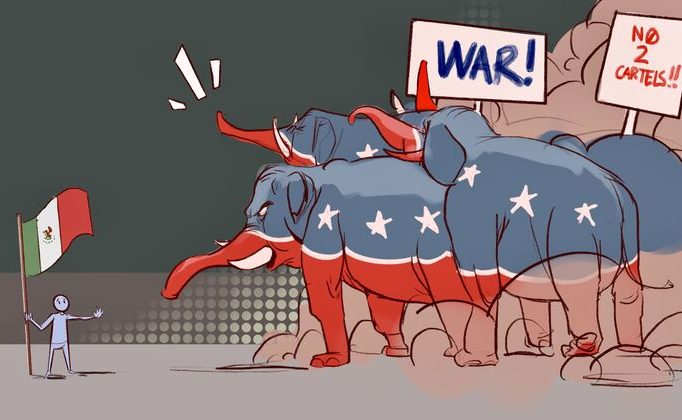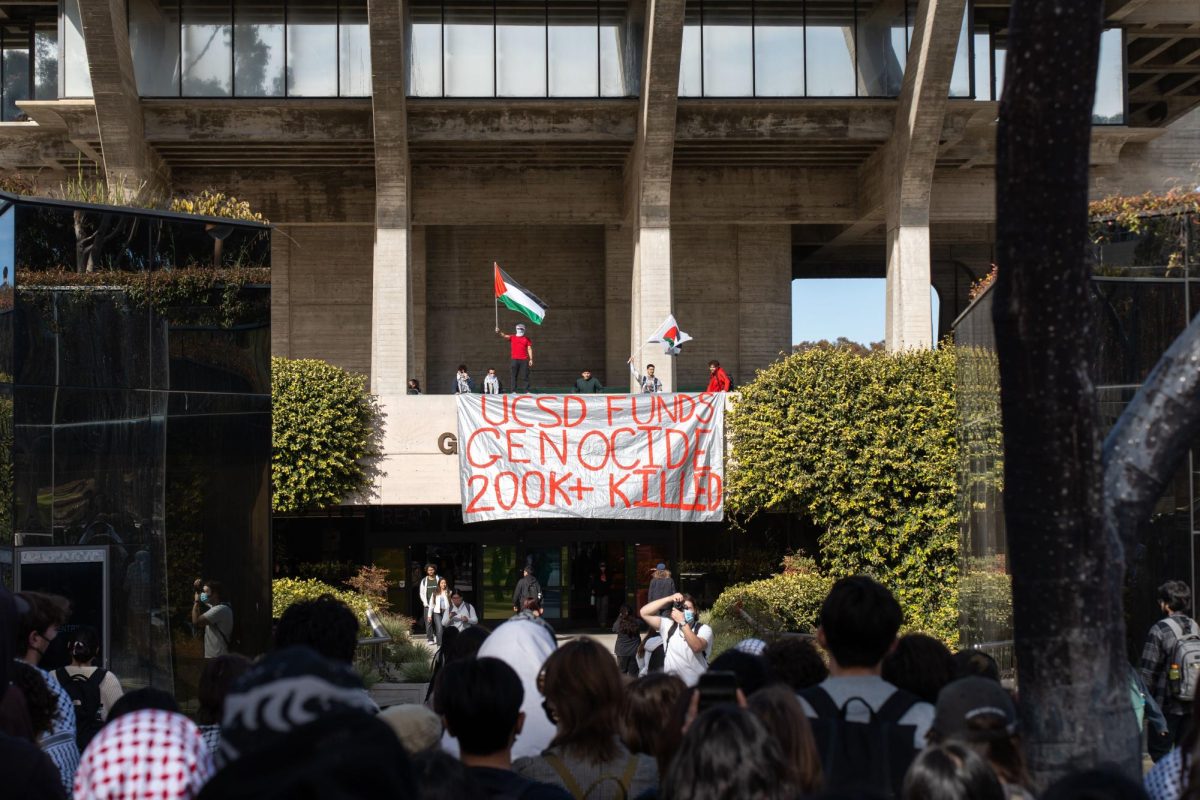In January, Rep. Dan Crenshaw (R-Texas) introduced legislation for the authorization of military force in Mexico. This legislation is focused on allowing the president of the U.S. to take unilateral military action in Mexico to deter and eliminate cartel activity related to the rising fentanyl epidemic in the U.S. While this joint resolution, H.J. Res. 18, is currently in legislative limbo, it serves as another example of conservative Congressional representatives’ increasingly jingoistic attitude towards Mexico and Mexican cartels.
The idea of implementing military intervention is not a mere pipe dream for one representative in Congress; it has been growing in support within mainstream politics as well. A wave of fentanyl deaths that many Americans attribute to a lack of security at the U.S.-Mexico border is likely adding fuel to the flames. Though deaths from opioid overdoses and drug seizures at the border reached a record high in March 2022, the primary source of these opioids is said to be China, not Mexico. After the U.S. began to crack down on opioid supply chains from China, Chinese suppliers began to use Mexico and cartels as an intermediary for their operations. This failed attempt at stopping fentanyl at its source is why think tanks such as the Brookings Institute recommend diplomacy, U.S. domestic prevention, treatment, harm reduction, and law enforcement efforts. The Brookings Institute also explicitly states the limited effectiveness of military action.
Still, these warnings and advisories against military intervention go unheeded by right-wing politicians in the U.S. The first GOP debate provided some examples of this. In response to a question regarding sending military forces across the border to “take out fentanyl labs, to take out drug cartels,” second place Ron DeSantis said, “Yes! I would do it on day one!” This idea stood unchallenged by the other candidates and was reinforced by some strong contenders, such as Vivek Ramaswamy. In the past, Ramaswamy has stated that he believes military resources currently allocated towards conflict in the Ukraine should be repositioned to the southern border.
With the upcoming presidential election, legislative threats regarding military action have a chance of coming to fruition. If candidate Donald Trump were to win, the chance of him conducting military operations in 2024 is high. He reportedly suggested using Patriot missiles (surface-to-air missiles) against drug labs during his presidency, but was deterred by the then Secretary of Defense, Mark Esper. Currently, Trump endorses the idea of using special operations against drug labs in Mexico. The amount of power a president has in foreign policy is much higher than that of domestic policy. It is much easier to take unilateral military action without Congressional approval. A past example of this is Obama’s 2011 military operations in Libya. Ultimately, Trump, or a Republican president, could be in a position to prompt drone strikes, raids, and, subsequently, war against the cartels.
However, military intervention could have dangerous consequences with minimal solutions. Mexico, the U.S.’s largest trading partner, would see this as an act of war. It is likely that asylum cases and border crossings would skyrocket, common side effects of military operations historically. In addition, Mexican President Andres Manuel Lopez Obrador has outright rejected the idea of any American military being deployed to Mexico. A sudden right-wing shift in Mexican politics that would create a political climate in which the Mexican government allows US troops within its border seems unlikely. The strongest challenger to AMLO’s MORENA party successor for the 2024 Mexican Presidential Elections is Xóchitl Galvez, who has adopted relatively progressive drug policies in the past. Unilateral action from the U.S. without Mexican support would only create incentive for the Mexican government to warm up to China and Russia.
Meanwhile, past military operations conducted in other countries have been unsuccessful in deterring the drug problem. For example, the air campaign Operation Iron Tempest against Taliban drug labs in Afghanistan started in 2017, only for the country to see a rise in opium production in 2018. Domestically, the war on drugs saw police with military gear attempting to use forceful tactics on American drug suppliers, but of course, studies found little to no effect on the drug market.
In an interview with The UCSD Guardian, Eli Berman, UC San Diego professor of economics and the research director for International Security Studies at the UC Institute on Global Conflict and Cooperation, said, “If you think for a minute about how easy it is to manufacture and conceal these new synthetics, it should be clear that there’s no supply-side solution, at the border or beyond, military or otherwise.” He continued on to say, “Cooperation with Mexican authorities could surely improve the situation, but even if all the aggressive suggestions by all the attention-seeking politicians were implemented, that little fentanyl pill would still be available for less than $10.”
The idea of military intervention is also growing in popularity among the general populace. According to an NBC poll conducted in June 2023, 55% of Americans and 86% of Republicans would be more likely to support a candidate who endorses the idea of deploying the U.S. Military to the border to stop the flow of drugs. In addition, the same poll found that 45% of Americans would be more likely to support someone who would deploy the military to the border to deal with immigration. To compare, the idea of military intervention in Mexico is more popular than sending weapons to Ukraine, which stands at a mere 37% according to the same poll.
No matter your political ideology, it is important to use awareness and educated voting to reverse these rising rates of approval for military intervention in Mexico. Electing candidates opposed to a war in Mexico is critical in maintaining peace just 30 miles south of our campus. If an interventionist president wins in 2024 and begins military operations in Mexico, the students at UCSD cannot leave a legacy of acquiescence. This issue is far too close to home for us to stand by as witnesses to such obvious violent imperialism. If the time comes, it will be our duty as the pinnacle of education and the roots of social justice to revive the legacy of Angela Davis and the activists of the days of old.





















